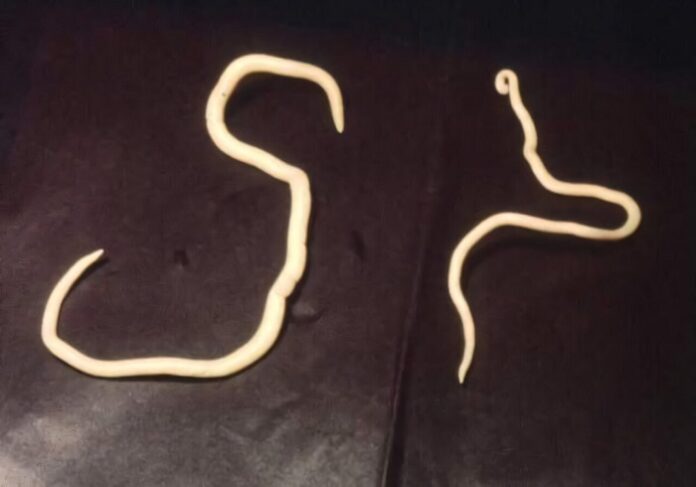A four-year research study has discovered that particles secreted by an intestinal worm may help treat inflammatory bowel disease (IBD), a condition affecting millions worldwide.
Breakthrough Findings on Worm-Derived Vesicles
As reported by medicalxpress, researchers found that extracellular vesicles (EVs) from the worm Ascaris suum significantly reduced inflammation in mice with colitis, a common form of IBD. The study, published in the Journal of Extracellular Vesicles, highlights a potential new avenue for IBD treatment.
Collaboration and Experimental Success
Dr. Farouq Sharifpour, DVM, Ph.D., from JCU’s Australian Institute of Tropical Health & Medicine (AITHM), co-authored the study. He collaborated with Professor Peter Nejsum’s team at Aarhus University in Denmark, where initial in vitro experiments demonstrated that EVs reduced inflammation by targeting specific blood cells.
“The team in Denmark obtained promising results in cell cultures, but they needed to see how EVs worked inside living organisms. That’s where our experiments came in,” Dr. Sharifpour explained.
His team tested EVs over three separate experiments on 130 mice with induced colitis. The results showed significant improvements, confirming that the vesicles had therapeutic potential.
Future Research and Therapeutic Potential
Encouraged by these findings, Dr. Sharifpour aims to continue working with Prof. Nejsum’s team to explore the mechanisms behind these effects further. Additionally, they plan to investigate the synthetic production of EVs for therapeutic applications.
“Our goal is to create semi-synthetic extracellular vesicles that can be used as new treatments for IBD, arthritis, and type 2 diabetes,” he stated.
Unlike chemical-based treatments, EV therapy is natural, non-invasive, and expected to have minimal adverse effects if properly regulated. “These therapeutics come from a natural source, making them a safer alternative for managing chronic inflammatory conditions,” Dr. Sharifpour added.























